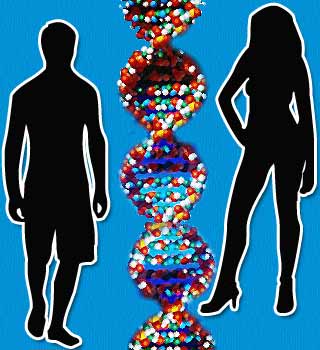
Experts from the Prince Henry’s Institute in Clayton, Australia believe that they may have just unveiled the key association of a particular gene and transsexuality in men. They reveal that it is actually a longer version of the androgen receptor gene that may be causing men to receive weaker testosterone signals. This in turn could under-masculinise the brain when in its developmental stages in the womb.
Dr Vincent Harley, lead researcher. remarked, “There is a social stigma that transsexualism is simply a lifestyle choice; however, our findings support a biological basis of how gender identity develops.â€
“This research suggests that extra long copies of the Androgen Receptor gene potentially affect testosterone function in the brains of male-to-female transsexuals,†commented Professor Andrew Sinclair, from the University of Melbourne. “These defective copies of the AR gene could severely reduce normal testosterone levels, resulting in a more female-like brain. Consequently, male-to-female transsexuals might be expected to have a more feminised brain and are therefore likely to display a female gender identity.â€
As part of the study a team of Australian scientists analysed DNA samples from around 112 male-to-female transsexuals. The researchers primarily took into sight the potential differences of three genes namely coding for the androgen receptor, the oestrogen receptor and an enzyme which converts testosterone to oestrogen. These genes are widely known to contribute to sexual development. The team then compared these DNA samples to a control group of about 258 participants.
The researchers found that an eminent link between the long version of androgen receptor gene and transsexuality. The gene in particular was discovered to give the brain a testosterone signal that was very weak. This researchers believe, could be the reason for the underdevelopment of the male sex hormone thus effecting gender progress in the womb.
A pretty large scale study as far as transsexualism is concerned; researchers are now planning to conduct a similar study on a large population. Scientists would however like to mention that there may be other genes too in the playing for testosterone action in male transsexuals. A previous study had highlighted the certain brain structures in male-to-female transsexual people give them the added female feel.
Though certain theories indicate psychosocial factors including dysfunctional family dynamics and traumatic childhood experiences as possible causes, researchers are now looking at biological factors like family history and genes too.
The study is published online in the Biological Psychiatry.
